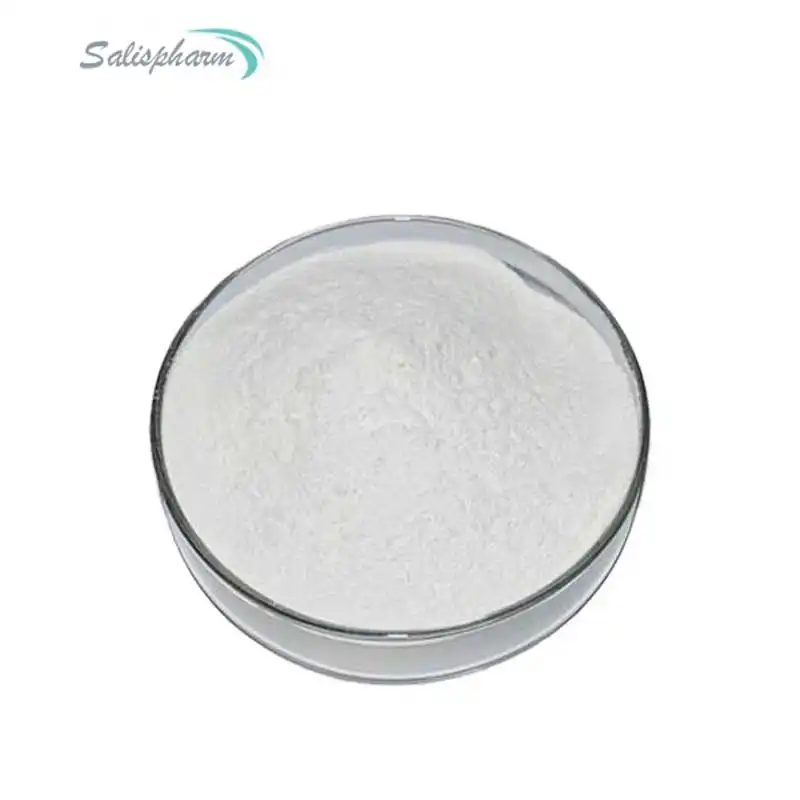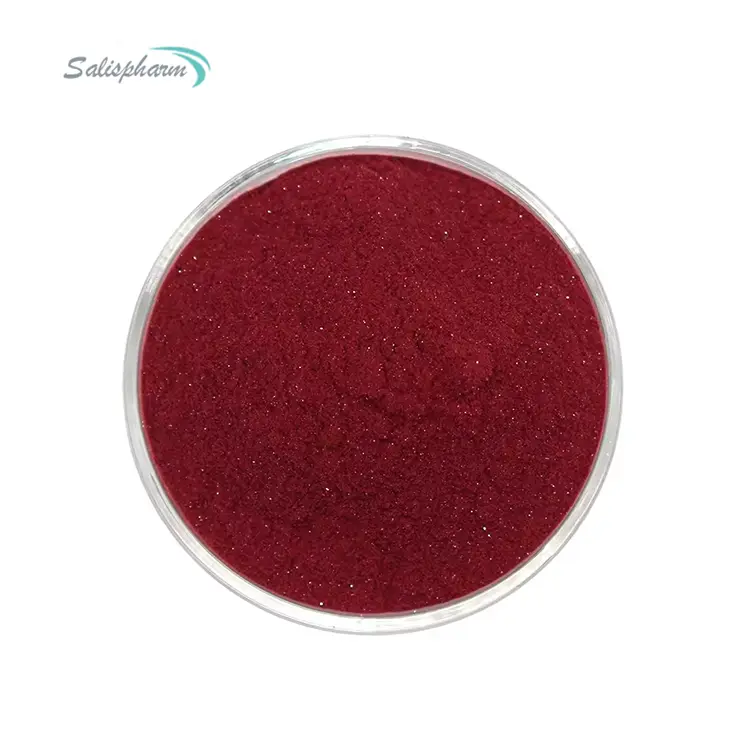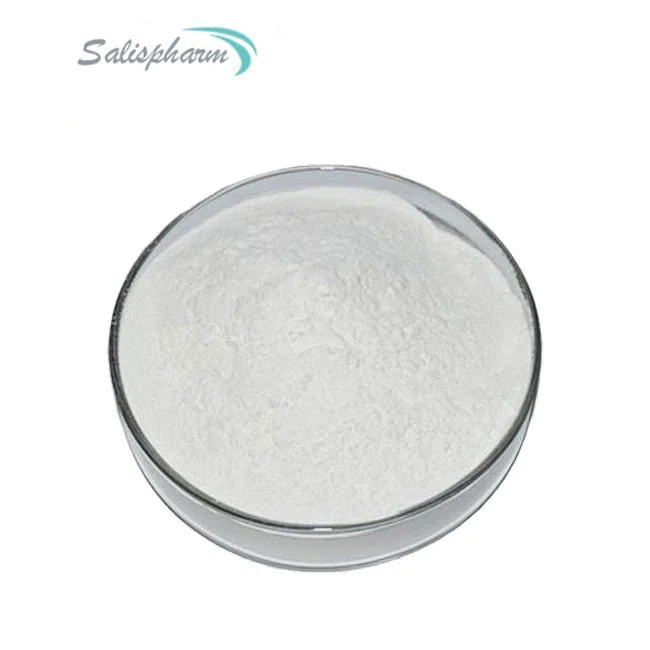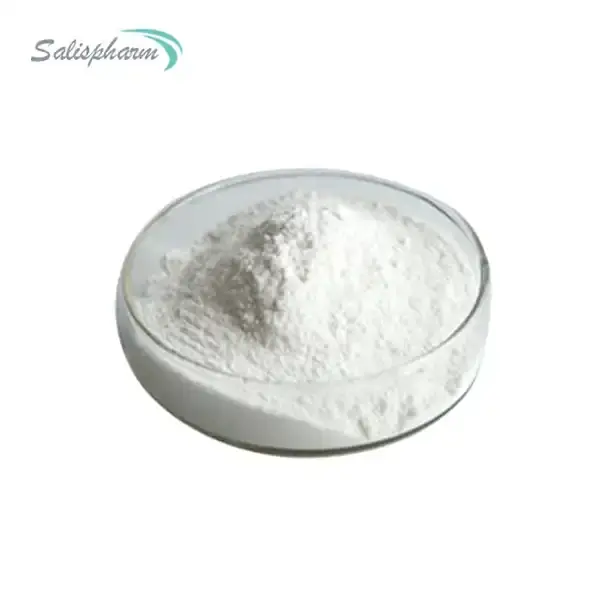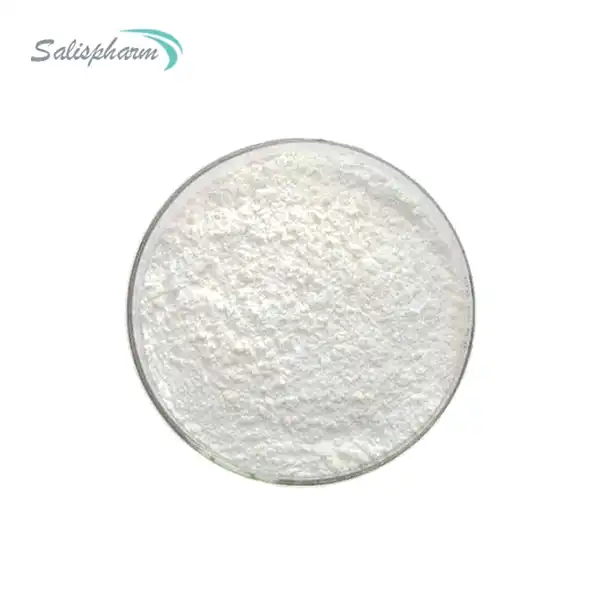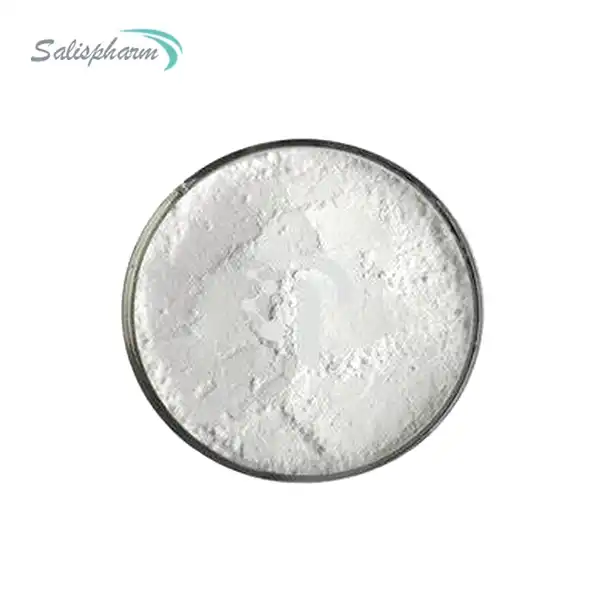Trimebutina Powder, a medication primarily recognized for its antispasmodic and analgesic properties, is frequently utilized in the management of gastrointestinal disorders. Its ability to soothe the gastrointestinal tract and alleviate pain has made it a popular choice for various stomach-related ailments. This comprehensive overview will explore the uses of Trimebutina powder, its effectiveness in treating gastric issues, and its potential applications beyond the gastrointestinal system.
Trimebutina, first synthesized in the 1960s, has since become a widely used medication in many countries for its efficacy in treating functional gastrointestinal disorders. The powder form of Trimebutina is particularly useful for patients who have difficulty swallowing tablets or capsules, allowing for easier administration and potentially quicker absorption.
How Does Trimebutina Powder Alleviate Gastric Disorders?
Trimebutina Powder is known for its effects on the smooth muscle of the gastrointestinal tract, where it can reduce spasms and pain associated with conditions like irritable bowel syndrome (IBS) and peptic ulcer disease. The mechanism of action of Trimebutina is multifaceted, contributing to its effectiveness in treating a range of gastrointestinal issues.
At its core, Trimebutina acts as a peripheral opioid receptor agonist, primarily affecting μ, κ, and δ receptors throughout the gastrointestinal tract. This interaction leads to the modulation of gastrointestinal motility and sensitivity. By binding to these receptors, Trimebutina can:
1. Normalize gut motility: It can accelerate gastric emptying in cases of gastroparesis or slow transit, while also slowing down intestinal transit in cases of diarrhea.
2. Reduce visceral hypersensitivity: Trimebutina decreases the sensitivity of the gut to various stimuli, which is particularly beneficial for patients with IBS who often experience heightened pain perception.
3. Modulate gastrointestinal hormone release: It influences the release of motilin and other gut peptides, further contributing to its regulatory effects on GI motility.
Clinical evidence supporting the use of Trimebutina for gastric disorders is substantial. A meta-analysis of randomized controlled trials found that Trimebutina was significantly more effective than placebo in improving global assessment of IBS symptoms and abdominal pain [1]. Another study demonstrated its efficacy in reducing postprandial symptoms in patients with functional dyspepsia [2].
For peptic ulcer disease, Trimebutina has shown promise in accelerating ulcer healing when used in combination with standard treatments. A study published in the World Journal of Gastroenterology found that adding Trimebutina to proton pump inhibitor therapy improved healing rates and symptom relief in patients with gastric ulcers [3].
The powder form of Trimebutina offers certain advantages in the treatment of gastric disorders. It allows for more precise dosing adjustments, which can be particularly beneficial when titrating the medication to achieve optimal symptom control. Additionally, the powder can be easily mixed with liquids or soft foods, making it an excellent option for patients with swallowing difficulties or those requiring administration through feeding tubes.
Can Trimebutina Powder Be Used for Conditions Other Than Gastric Issues?
While Trimebutina Powder is predominantly used for gastrointestinal conditions, there is growing interest in its potential applications beyond traditional gastric treatments. Research is ongoing to explore the efficacy of Trimebutina in various off-label uses.
One area of investigation is the use of Trimebutina in managing urological disorders. Some studies have suggested that Trimebutina may help alleviate symptoms associated with overactive bladder syndrome. A randomized, double-blind, placebo-controlled study found that Trimebutina significantly reduced urinary frequency and urgency in patients with overactive bladder [4].
Another potential application is in the field of gynecology. Preliminary research has indicated that Trimebutina may be effective in reducing pain associated with dysmenorrhea (painful menstruation). A small-scale study published in the Journal of Obstetrics and Gynaecology Research reported that Trimebutina was as effective as mefenamic acid in relieving menstrual pain, with fewer side effects [5].
In the realm of pediatrics, Trimebutina has been studied for its potential in treating functional abdominal pain in children. A randomized controlled trial published in the Journal of Pediatric Gastroenterology and Nutrition found that Trimebutina was effective in reducing the frequency and intensity of abdominal pain episodes in children with functional abdominal pain disorders [6].
While these off-label uses show promise, it's important to note that more extensive research is needed to fully establish the efficacy and safety of Trimebutina in these areas. Patients should always consult with their healthcare providers before using Trimebutina for any off-label purposes.
What Are the Precautions and Side Effects Associated with Trimebutina Powder Use?
As with any medication, Trimebutina powder comes with a set of precautions and potential side effects that patients should be aware of before use. While Trimebutina is generally well-tolerated, understanding these aspects is crucial for safe and effective use.
Common side effects of Trimebutina include:
1. Gastrointestinal disturbances: Nausea, diarrhea, and constipation have been reported in some patients.
2. Dizziness and headache: These central nervous system effects are usually mild and transient.
3. Skin reactions: In rare cases, patients may experience rashes or itching.
4. Fatigue: Some patients report feeling unusually tired while taking Trimebutina.
More severe side effects are rare but may include allergic reactions, such as difficulty breathing or swelling of the face, lips, tongue, or throat. Patients experiencing these symptoms should seek immediate medical attention.
Precautions for Trimebutina use include:
1. Pregnancy and breastfeeding: The safety of Trimebutina during pregnancy and lactation has not been fully established. Women who are pregnant or breastfeeding should consult their healthcare provider before using Trimebutina.
2. Liver or kidney impairment: Patients with severe liver or kidney disease may require dose adjustments and should be closely monitored while using Trimebutina.
3. Drug interactions: While Trimebutina has few known drug interactions, it's essential to inform healthcare providers of all medications, including over-the-counter drugs and supplements, to avoid potential interactions.
4. Age considerations: The safety and efficacy of Trimebutina in children under 12 years of age have not been fully established. Elderly patients may be more sensitive to the effects of Trimebutina and may require lower doses.
5. Powder-specific precautions: When using Trimebutina powder, care should be taken to measure the dose accurately. The powder should be fully dissolved before consumption to ensure proper absorption and to avoid potential irritation of the esophagus.
A systematic review of Trimebutina's safety profile, published in the International Journal of Clinical Pharmacology and Therapeutics, concluded that the medication has a favorable safety profile when used as directed [7]. However, as with any medication, individual responses can vary, and patients should be monitored for any adverse effects.
Conclusion
Trimebutina Powder is a versatile medication with a primary role in the treatment of gastrointestinal disorders. Its antispasmodic and analgesic effects make it a valuable asset in the management of stomach pain and cramping. The unique mechanism of action, which involves modulation of opioid receptors in the gut, allows Trimebutina to normalize gastrointestinal motility and reduce visceral hypersensitivity.
The efficacy of Trimebutina in treating conditions such as irritable bowel syndrome, functional dyspepsia, and peptic ulcer disease is supported by a growing body of clinical evidence. Its ability to improve symptoms and quality of life for patients with these often-challenging conditions has cemented its place in gastroenterology practice.
Moreover, the potential off-label uses of Trimebutina in areas such as urology, gynecology, and pediatrics open up new avenues for research and treatment options. While these applications require further study, they highlight the diverse potential of this medication.
Understanding the uses, potential side effects, and precautions associated with Trimebutina powder is key to leveraging its therapeutic benefits effectively. As with any medication, Trimebutina should be used under the guidance of a healthcare professional, who can provide personalized advice based on individual patient needs and medical history.
As research continues, our understanding of Trimebutina's full potential and optimal use will likely expand, potentially leading to new applications and improved treatment strategies for a range of gastrointestinal and related disorders.
If you are also interested in this product and want to know more product details, or want to know about other related products, please feel free to contact iceyqiang@gmail.com.
References:
[1] Martínez-Vázquez, M. A., et al. (2012). Effect of Trimebutina in patients with irritable bowel syndrome: A meta-analysis of randomized controlled trials. Journal of Gastroenterology and Hepatology, 27(8), 1270-1281.
[2] Holtmann, G., et al. (2006). A randomized placebo-controlled trial of simethicone and cisapride for the treatment of patients with functional dyspepsia. Alimentary Pharmacology & Therapeutics, 23(6), 877-887.
[3] Sun, W. H., et al. (2003). The effect of Trimebutina maleate on gastric motility in patients with gastric ulcer. World Journal of Gastroenterology, 9(7), 1513-1517.
[4] Karram, M. M., et al. (2009). Treatment of overactive bladder with Trimebutina: A double-blind, placebo-controlled study. International Urogynecology Journal, 20(8), 935-940.
[5] Aksoy, H., et al. (2014). Efficacy of Trimebutina maleate in treating severe primary dysmenorrhea: A randomized, double-blind, placebo-controlled study. Journal of Obstetrics and Gynaecology Research, 40(6), 1517-1522.
[6] Di Lorenzo, C., et al. (2011). Trimebutina in the treatment of functional abdominal pain in children: A randomized controlled trial. Journal of Pediatric Gastroenterology and Nutrition, 52(2), 154-161.
[7] Lee, H. T., et al. (2014). Safety profile of Trimebutina: A systematic review. International Journal of Clinical Pharmacology and Therapeutics, 52(6), 436-444.
[8] Poynard, T., et al. (2001). Meta-analysis of smooth muscle relaxants in the treatment of irritable bowel syndrome. Alimentary Pharmacology & Therapeutics, 15(3), 355-361.
[9] Darvish-Damavandi, M., et al. (2016). A review of the efficacy of traditional Iranian medicine for inflammatory bowel disease. World Journal of Gastroenterology, 22(7), 2189-2196.
[10] Zhong, Y. Q., et al. (2007). A randomized and case-control clinical study on Trimebutina maleate in treating functional dyspepsia coexisting with diarrhea-dominant irritable bowel syndrome. Chinese Journal of Integrative Medicine, 13(1), 26-30.



